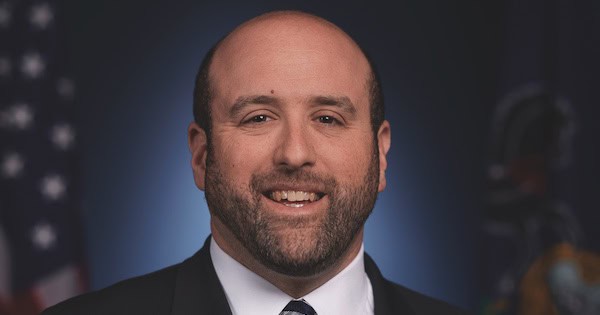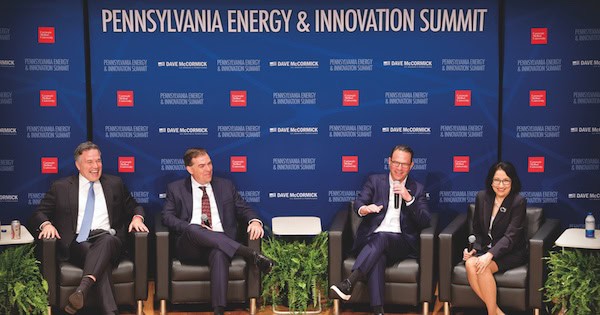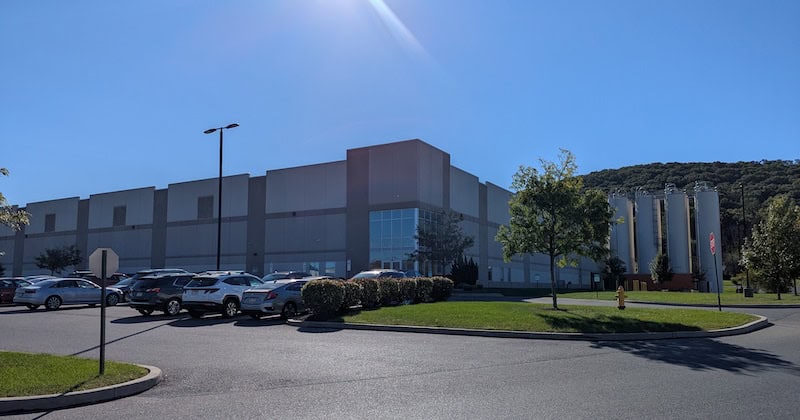By Anne Cosgrove
From the September / October 2025 Issue
Under Governor Josh Shapiro’s administration, since January 2023 Pennsylvania has secured more than $25.2 billion in private sector investment and created nearly 11,000 new jobs. One significant milestone was in June, when Amazon announced a $20 billion investment to build AI and cloud computing campuses across the Commonwealth. This project is expected to create at least 1,250 high-paying tech jobs and thousands more construction and supplier jobs. As part of the agreement, the Commonwealth is investing $10 million to expand workforce training, vo-tech, and career and technical education.
Meanwhile, a cornerstone of Gov. Shapiro’s economic development plan is addressing a need for development-ready industrial and commercial sites. To address this, the PA SITES (Pennsylvania Strategic Investments to Enhance Sites) program was created. It has secured $500 million in site development funding, including $400 million specifically for PA SITES, in the 2024-25 budget. In May, the first round of PA SITES awards was announced—a $64 million investment in 11 projects to prepare shovel-ready sites for business. The strong demand for PA SITES funding—with 66 applications requesting more than $377 million—highlights the critical nature of these investments.
Business Facilities spoke with Rick Siger, Secretary, Pennsylvania Department of Community & Economic Development, about the view from that office.
Business Facilities: In looking at the state in terms of economic development, what are main areas you’re focused on right now?
Secretary Siger: At the Department of Community & Economic Development, our top priorities are making Pennsylvania a place where businesses want to invest and where people want to live and work. That comes down to three primary things: creating good jobs, building up our talent pipeline, and driving innovation. We’re also looking closely at how to support communities of all sizes across the state.

 Rick Siger, Secretary, Pennsylvania Dept. of Community & Economic Development
Rick Siger, Secretary, Pennsylvania Dept. of Community & Economic Development
BF: Can you talk about how the state is approaching workforce development?
Sec. Siger: Workforce is front and center for us. We’re strengthening training programs, connecting students with career pathways, and supporting partnerships between education and industry. We want to make sure that whether someone is just entering the workforce, switching careers, or re-skilling for a new opportunity, they have access to the tools and resources they need.
BF: You’ve touched on innovation as a priority. Pennsylvania has a strong base in research and technology. How are you working to leverage that?
Sec. Siger: Pennsylvania is fortunate to have world-class universities, research institutions, and innovative companies across multiple industries. We’re focused on is strengthening those connections between research and commercialization—making sure that the discoveries happening in our labs translate into new businesses, new jobs, and new opportunities.
We’re also putting energy into supporting entrepreneurs and startups. Innovation often comes from smaller companies willing to take risks, so we want to make sure the ecosystem is strong for them, too. That includes access to capital, mentorship, and a regulatory environment.
BF: And part of that is making sure the state itself is competitive.
Sec. Siger: Yes, we’re competing nationally and globally for investment, and so it’s critical Pennsylvania has a business climate that’s attractive. That means everything from infrastructure to tax policy to the quality of life. When you combine that with our natural assets—like energy resources and location—Pennsylvania has a very strong value proposition.
BF: You mentioned supporting growth across the state, not just in one or two regions. How are you ensuring that smaller towns and rural areas benefit?
Sec. Siger: That’s an important point. Economic development isn’t just about big cities or large projects—it’s about making sure every part of Pennsylvania has the chance to thrive. We’re doing that in a few ways. First, by investing in infrastructure—broadband, transportation, utilities, because those are the foundations communities need to attract and retain businesses.
Second, we’re working directly with local leaders. They know their communities best, so we want to provide the resources and flexibility to pursue opportunities that make sense for them. Sometimes that’s supporting a small manufacturer, other times it’s about revitalizing a downtown or investing in tourism.
BF: That involves a lot of collaboration.
Sec. Siger: Yes, absolutely. It takes partnerships between state government, local government, private industry, nonprofits, and educational institutions.
BF: How does Pennsylvania balance its legacy industries with emerging opportunities?
Sec. Siger: We’re proud of our legacy industries—manufacturing, energy, agriculture—and these continue to be critical to our economy. At the same time, we are proactive about preparing for what’s next. That means supporting advanced manufacturing, clean energy, life sciences, and technology. It’s about building on our strengths while embracing innovation.

 Governor Josh Shapiro speaks about the energy potential of his state at the inaugural Pennsylvania Energy and Innovation Summit in Pittsburgh in July. (Photo: Pennsylvania Dept. of Community & Economic Development)
Governor Josh Shapiro speaks about the energy potential of his state at the inaugural Pennsylvania Energy and Innovation Summit in Pittsburgh in July. (Photo: Pennsylvania Dept. of Community & Economic Development)
BF: You mentioned clean energy. How is Pennsylvania approaching the transition while still supporting its traditional energy base?
Sec. Siger: Energy is one of Pennsylvania’s greatest assets. We have a long history in energy production, and we’re proud of that, but we also recognize that the global economy is shifting. Our approach is to be pragmatic—we want to continue to support the industries that provide jobs today, while also investing in the technologies that will drive growth.
That includes things like carbon capture, hydrogen, and renewable energy development. It’s not an either-or conversation. It’s about ensuring that Pennsylvania is at the forefront of the energy transition.
BF: And what role does workforce training play in that?
Sec. Siger: It’s critical. As industries evolve, the skills required evolve too. We’re working with unions, community colleges, and training providers to make sure workers have pathways into these new jobs. If you’re a worker in the traditional energy sector, we want to make sure you have opportunities to transition into the next generation of energy jobs.
BF: Looking ahead, what do you see as the biggest opportunities over the next five to 10 years?
Sec. Siger: I think the opportunities are tremendous. One of the biggest is leveraging our higher education system and research assets. We have world-class institutions, and the more we can connect them with industry and with entrepreneurs, the more we’ll see growth in sectors like life sciences, advanced manufacturing, and technology.
Another opportunity is location. Pennsylvania sits within a day’s drive of nearly half the U.S. population. That’s a huge advantage for companies in logistics, distribution, and manufacturing. As supply chains evolve, we’re in a strong position to capture new investment.
And finally, our communities are an opportunity. People want vibrant places to live—with affordable housing, cultural amenities, and a high quality of life. We’re seeing more companies factor that in decisions.
BF: And what do you see as the biggest challenges?
Sec. Siger: Every state is competing for skilled workers, and we have to be proactive about retaining our graduates and attracting people to Pennsylvania. Infrastructure is another challenge—we keep making investments, so we don’t fall behind. And then, like every state, we face fiscal realities, so we have to be smart about how we deploy resources.
BF: Finally, if you had one message to share with business leaders, what would that be?
Sec. Siger: I would say Pennsylvania is committed to being a partner in growth. If you’re looking for a place to invest, to grow, to innovate, Pennsylvania should be at the top of your list. We’re focused on creating an environment where companies can succeed and where people thrive.
— Breaking News —Ecopax Expands In The Lehigh Valley 

Ecopax, LLC, a manufacturer of sustainable food packaging solutions, is growing in Pennsylvania’s Lehigh Valley with a 104,238-square-foot expansion of its existing operations.
Located in Bethlehem, the project marks the second collaboration between Ecopax and J.G. Petrucci Company, Inc. In 2006, Petrucci delivered a 100,000-square-foot facility in Easton, PA which serves as Ecopax’s headquarters. The new expansion will further support Ecopax’s growing manufacturing operations at Lehigh Valley Industrial Park (LVIP).
“Ecopax is committed to growing our sustainable manufacturing capabilities right here in the Lehigh Valley,” said Peter Wong, Founder of Ecopax. “Petrucci built our first plant in Easton in 2006 and we believe they will continue to do an excellent job for us in this expansion.”
The addition will complement an existing 315,643-square-foot manufacturing and warehousing facility. It will feature six new loading docks, 12 additional truck parking spaces, and upgraded fire protection infrastructure, including two new fire hydrants and a water line expansion. The project reflects Ecopax’s ongoing success and increased demand for its sustainable packaging products, including takeout containers and hot and cold paper cups and bowls designed to reduce environmental impact by using energy-efficient processes and eco-conscious materials.
“Ecopax’s continued investment in their Bethlehem facility illustrates the strength of our industrial parks and the value of long-term partnerships between local companies and experienced developers like J.G. Petrucci,” said Kerry Wrobel, President of Lehigh Valley Industrial Park, Inc.
Lehigh Valley is home to more than 100 international companies. Food and beverage producers are a cornerstone of the region’s manufacturing-driven economy. In the past 15 years, employment in food and beverage manufacturing has grown by 76%. Global brands that operate in the Lehigh Valley include Coca-Cola, Ocean Spray, Boston Beer Co., Freshpet, Just Born, Bakerly/Norac Foods, and Bimbo Bakeries.
Last month, global food and beverage leader Kerry Group announced a new, multi-million-dollar manufacturing facility in the region. In June, Turkish candy producer Kervan USA broke ground on a $20 million facility for manufacturing and packaging in Bethlehem and Lower Nazareth townships that will also serve as the company’s U.S. headquarters.
